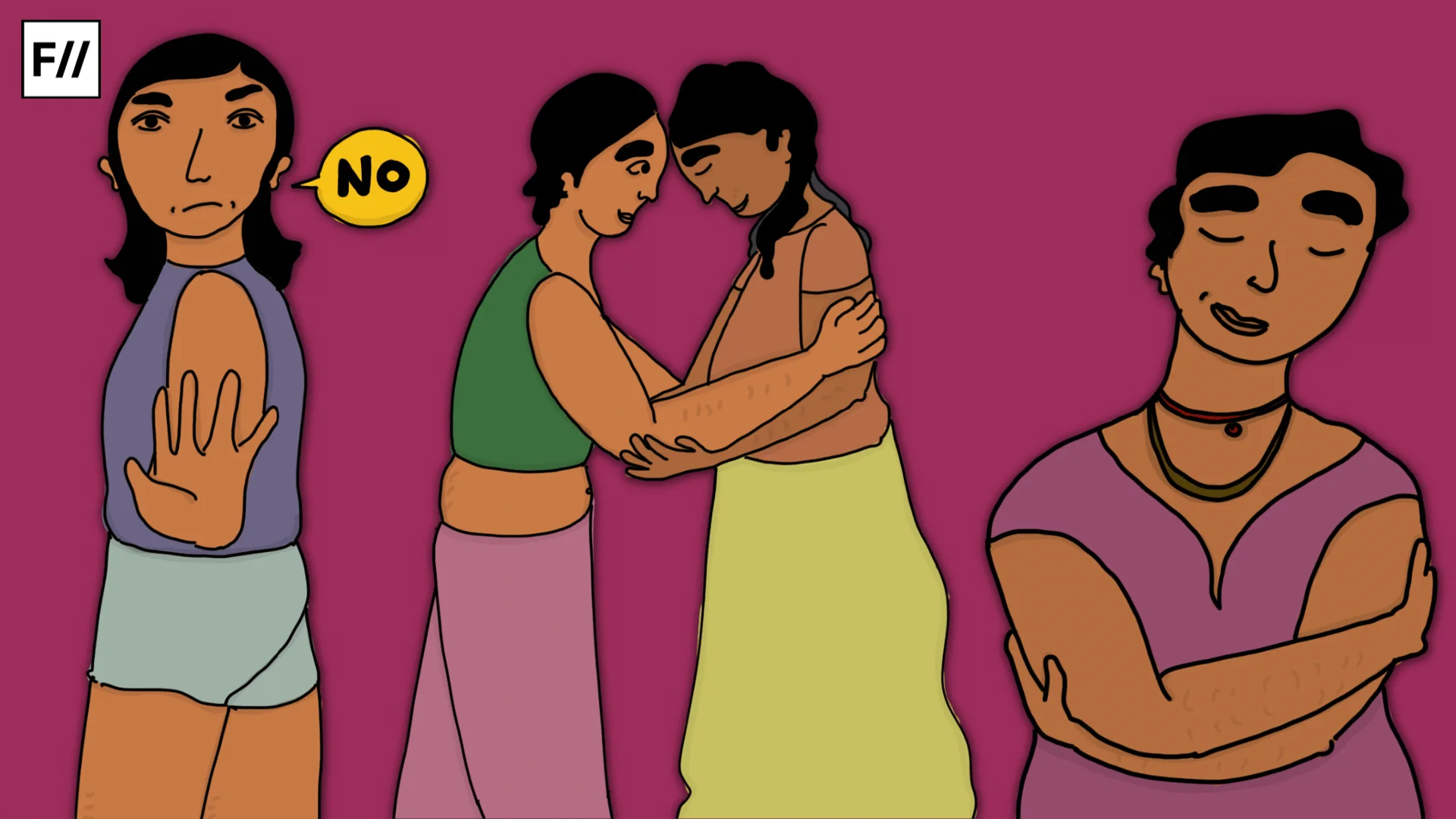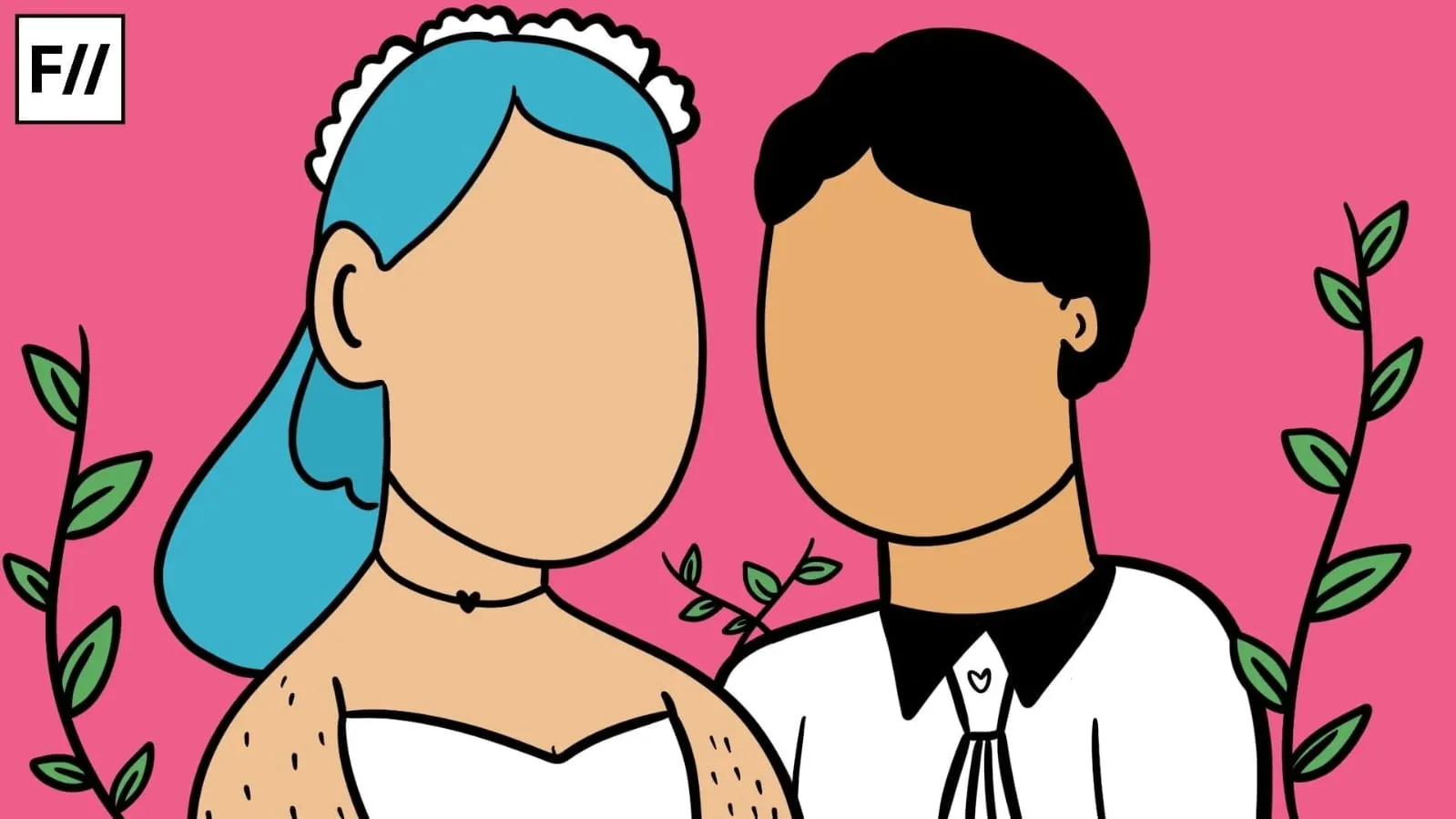“Our world is one in which carelessness reigns,” are the opening lines of The Care Manifesto by The Care Collective. Their words echo in today’s digital world, where attention is currency and empathy often feels automated. Sociologist Beverley Skeggs once described care as the backbone of capitalist societies. It is essential to carry out the work, but it is undervalued.
In the age of the information economy, sharing is caring. Likes, comments, and shares have become measurable signs of care and sources of income. On Instagram, every five-second reel hides hours of unseen work: scripting, editing, subtitling, researching, and staying up to date with trends. Scrolling reels and increased screentime are a social and economic currency for such platforms. The pressure to constantly create and remain visible is real. And so is the burnout. In the virtual space where knowledge is free, creators’ intellectual and digital labour remain unpaid, invisible, feminised, and uncared for.
For sexuality educators on Instagram, this invisible labour is layered with gendered roles, trolling, and censorship. Teaching young people about sexual health, consent, pleasure, and relationships is not easy and often dismissed as “unserious” or “immoral”. Despite these challenges, many of them are redefining what care means in digital spaces, turning exhaustion into solidarity and visibility into resistance.
Feminisation of care
Content creation on sexuality education is highly gendered. Talking about pleasure, sexuality, orgasm gap, menstrual health, and gender identity, especially for women, is historically overlooked. Within the online public sphere, education on sexual health and women’s pleasure reflects this age-old, undervalued labour that women do.
A male sexuality educator and a gynaecologist making content on Instagram is sometimes an exception. As a male educator in a solemn medical profession, Dr S says he gets trolled for talking about unserious topics such as sex. Meanwhile, female educators are targeted and criticised for their body image, the way they look, called indecent, slut-shamed, or immoral. Talking about trolling, Dr Cuterus says, “One common troll I get is comments like fatherless behaviour and comments on my body.”
This difference reveals how gendered norms of respectability and expertise shape the public legitimacy of sexuality educators. When women talk about sex, it violates the moral codes of modesty. Men talking about sex is not coded as immoral but as unserious. Their masculinity protects them from moral scrutiny, but they are trivialised because they enter a feminised domain of care and pleasure.
Mechanical reproduction of care
Content creators’ emotional, intellectual, and embodied labour is often undermined. It is forced to be produced as a carefully packaged performance in the format of reels, infographics, and clickbait-y advice, producing what suits the platform while emotionally taxing the educator.
P, a forty-year-old female sexuality educator, described this tension succinctly, “I get hundreds of DMs from people about their marriages, sexual dissatisfaction, trauma, sometimes at 3 AM. I can’t respond to everyone. When I don’t, people think I don’t care. There’s guilt in not replying, even when it’s impossible.”
A sexuality educator must always be available, empathetic, and responsive. Women and queer educators emphasised the need to respond quickly, or else the messages risk being ignored. Gayatri, a young married sexuality educator on Instagram, @gayatrisa, says, “Some people are genuinely in need of help. I try to reply to all DMs. But some are downright abusive. I block haters or negative comments. I have stopped caring about it.”
Women’s intellectual labour and emotional attention are taken as granted. It becomes an infinite resource, echoing Nancy Fraser’s (2016) ‘capitalism treats care as infinite as a reservoir’ metaphor. Their work is fed into an algorithm that rewards attention without caring.
Dr Cuterus talks about how algorithmic systems reshape care into performance, “I have to make everything sound fun or light, otherwise Instagram flags it. But these are serious topics. You end up making content in a digestible way because that’s what works.”
What counts as consumable content should align with the platform’s visual and moral codes. A cheerful, byte-sized, visually clean enough for people to look at.
Digital violence in online sex education
The most disturbing part of this economy is the violence that educators face daily. Many receive sexual harassment disguised as curiosity.
A thirty-year-old queer sexuality educator says, “I used to keep my DMs open, and people would chat to me about their sex life problems. However, it was more harassment than genuine problems. Someone could be actually confused about ‘how to play with breasts,’ but mostly, some men asked me such questions to harass me.”
They go on to speak about providing video call counselling and where “flashing private parts” was common. Upon questioning what they did about the incident, they said, “Nothing. You block them and move on.”
Who do educators turn to? The platform itself undervalues sexuality educators’ work as explicit, obscene, or risky. A forty-year-old sexuality educator on Instagram who talks openly about female pleasure says, “People call me a pornstar on my reels when I speak openly about my sexuality as an ageing woman.”
Even with India’s laws on cyber harassment, reporting such incidents remains cumbersome. Blocking, reporting, or not caring is the best option. This silence isn’t apathy, it’s exhaustion. Platforms rarely take responsibility, and algorithms often amplify hate by rewarding outrage and engagement. Sexuality educators, especially women and queer creators, become easy targets in a system that values visibility but provides no protection. K, another sexuality educator, says her content gets banned, flagged, or reported by the platform itself for its sexual content. She says, “I’ll change the spellings, I’ll use euphemisms, but my content keeps getting flagged. I keep getting notices from Instagram saying my content will be banned, which has impacted my growth. You don’t see stand-up jokes on sex getting banned, but factual content is put down immediately.”
S, 23, who runs a sex education page focusing particularly on youth sexual health and relationships, elaborated on how care shifts from collective to individualised under this regime. “Earlier I used to think of this as community education, but now it feels like therapy for followers[…] people want personal validation more than learning. The emotional work is endless.”
Beyond solidarity, towards collective care
Sexuality education in India is still not institutionalised. Social media acts as a bridge to close the ignorance towards sexuality. In the absence of adequate care infrastructure, independent educators find it hard to survive. With the constant demand to produce, with little or no reward in the form of likes, shares, and subscriptions, educators are left to fight the invisible world of algorithms. As young sexuality educators grow on Instagram, they also create a collective network.
Acts of collective care and resistance emerge. Educators are coming together with certificate courses on social media to tackle the arbitrary algorithmic content regulation.
Artika, a 28-year-old sexuality educator who founded The Secs Project for online sexuality educators, discusses the support system educators have built.
“It is very good to have that network of other like-minded sex educators. The sex-ed we want to do, comprehensive and inclusive, can become an echo chamber […] but you bounce ideas off each other, brainstorm together, talk about diverse concepts, and you can get feedback from others. We collaborate and push our content together. Celebrity educators with a million followers are so humble. I just DM-ed one when I had a thousand followers, and she was just so kind and receptive.”
These small solidarities echo a form of radical care: not merely emotional support, but a political practice that thinks beyond the logic of capital.
About the author(s)
Annika Amber is a doctoral student of sociology at University of Hyderabad.




